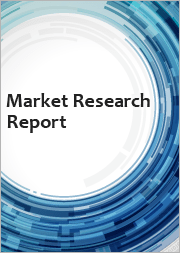
|
시장보고서
상품코드
1838093
OX40 표적 치료제 시장 : 임상시험, 치료 접근법, 독자 기술 플랫폼, 기회(2026년)OX40 Targeted Therapies Clinical Trials, Therapeutic Approaches, Proprietary Technology Platforms & Market Opportunity Insight 2026 |
||||||
OX40 표적 치료제의 임상시험, 치료 접근법, 독자 기술 플랫폼, 기회(2026년) 보고서의 조사 결과 및 하이라이트
- 2030년까지 최초의 OX40 표적 치료제가 승인
- 임상시험 중 OX40 표적치료제 : 10이상의 치료법
- OX40 표적 치료제의 임상시험 상황을 지배하는 암
- OX40 표적 치료제의 기업별, 국가별, 적응증별, 상별 임상시험 인사이트
- OX40 표적 치료제의 기업별 독자 기술
- 경쟁 구도
OX40 표적 치료제의 필요성과 이 보고서의 중요성
OX40 표적 치료제는 특히 아토피 피부염, 천식 및 기타 염증성 질환과 같은 면역 매개 질환에서 차세대 면역조절의 새로운 표적으로 급속히 보급되고 있습니다. 본 보고서에서는 제약기업의 투자와 아카데미아의 관심이 융합되어 후보 화합물의 활기찬 파이프라인을 만들어 내는 급속히 발전하는 이 분야의 개요를 소개합니다.
여러 후보들이 후기 임상시험 단계에 있으며, 기술 혁신은 진단 쌍뿐만 아니라 병용 전략에도 미치고 있기 때문에 OX40 요법의 전망과 장래의 방향성을 아는 것은 전례 없이 중요해지고 있습니다. 이 보고서는 투자자, 생명 공학 기업 간부 및 임상 연구자를 포함한 업계 관계자에게이 치료 축의 진화 가능성과 그것을 실현하는 원동력에 대해 계몽하는 것을 목적으로합니다.
OX40 표적 치료제의 임상시험에 대한 보고서의 통찰력
OX40 표적 치료제의 임상 기운은 높아지고 있으며, 여러 후보가 파이프라인을 진행하고 있습니다. 특히 주목받는 것은 염증성 피부 질환에서 유망한 결과를 보여주는 임상시험입니다. 중요한 것은 이러한 치료가 기존의 표준 치료와 다른 특징인 반응의 지속성과 선택적 면역조절의 가능성을 보여주는 것입니다. 미국 이외의 지역에서는 유럽, 중국, 호주에서의 임상 활동 확대가 이러한 면역 요법에 대한 세계 관심의 확산을 보여줍니다. 이러한 지리적 확장은 세계 시장에서 더 광범위하게 받아들여지고 향후 규제 당국의 길을 만들 수 있음을 보여줍니다.
기술 플랫폼, 파트너십, 계약
이 보고서에서 주목할만한 혁신적인 기술 중 하나는 OX40 및 기타 관련 면역 수용체를 표적으로하는 자체 치료 개발 엔진인 autoRx40 플랫폼입니다. 이 기술은 항체 공학과 분자 설계 능력을 결합하여 이중특이적 항체와 다중특이성 항체를 신속하게 개발하는 것입니다. autoRx40은 그 모듈성과 설계의 모듈성에 의해 면역억제 작용과 병원성 면역세포의 고갈작용을 겸비한 표적 치료제를 제공할 수 있습니다. 복잡한 자가 면역 질환의 치료에 이 기술의 사용은 후보 HX035와 HX038에 의해 입증되었습니다. 이 플랫폼은 변화하는 임상 요구에 대응하기 위해 확장 가능하고 유연한 치료 엔진 개발을 목표로하는 업계의 큰 움직임을 반영합니다.
OX40 표적 치료제의 연구 개발에 적극적인 주요 기업
OX40 치료 분야에서는 주요 제약기업과 생명공학기업도 참가하고 있습니다. Sanofi와 Amgen은 블록버스터의 잠재력을 지닌 후기 단계 후보 약물을 완성하려고 노력하고 있으며, Astria Therapeutics와 같은 최근 진출기업은 혁신적인 엔지니어링 개선으로 유망한 초기 단계 증거를 제시합니다. 또한 ImageneBio와 같은 기업은 성숙한 항체 기술을 통해 안전성을 높이고 오프 타겟 효과를 최소화하는 것을 목표로합니다.
이러한 진보는 종종 혁신주기를 추진하고 임상 진전을 촉진하는 합작투자, 전략적 제휴 및 학술 공동 연구에 의해 촉진됩니다. 이러한 치료법의 추가 개발은 환자의 반응, 안전성 프로파일 및 투여 간격의 차별화가 마켓플레이스에서 성공의 지표가 될 것으로 보입니다.
OX40 표적 치료제의 향후 개발을 제안하는 보고서
OX40 요법은 단일 요법에서 질병의 중증도와 환자 프로파일을 기반으로 한 병용 요법으로 진전하고 있습니다. 미래에는 치료 효과를 최적화하기 위해 생물학적 제형과 정밀 진단을 결합한 전략이 등장할 것으로 보입니다. 반감기가 길고, 면역원성이 낮고, 환자의 컴플라이언스가 양호한 치료제가 개발되고 있어, 현재의 치료에 대한 강력한 과제가 되고 있습니다. 후기 단계의 데이터가 축적되고 규제상의 장애물이 지워지면, 이러한 치료제는 면역 질환 치료의 새로운 기준을 세우는 잠재력을 가지고 있습니다. 본 논문에서는 면역학 혁신의 미래 파동에 대해 배우고 투자하는 데 관심이 있는 이해관계자에게 전략적 비전을 제시합니다.
목차
제1장 OX40 경로의 소개
- OX40 경로의 배경
- 면역요법에서의 의미
- 질환 바이오마커로서의 OX40
제2장 OX40 경로를 표적으로 한 치료
- OX40 어고니즘
- OX40 길항작용
- 표적 접근과 작용 기작
- 항체
- 핵산
- 융합 단백질
- 소분자
- 펩티드
제3장 OX40 표적 치료제의 적응
- 암
- 고형 종양
- 조혈 악성 종양
- 감염증
- 자가면역 질환 및 염증성 질환
- 기타 잠재적인 징후
제4장 OX40 표적 치료제
제5장 OX40 표적 치료제의 세계 임상시험 개요
- 상별
- 적응증별
- 기업별
제6장 OX40 표적 치료제의 임상시험에 관한 세계 통찰(기업, 국가, 적응증, 상별)
- 전임상
- 제0상
- 제I상
- 제I/II상
- 제II상
- 제II/III상
- 제III상
제7장 OX40 표적 치료제 개발 플랫폼(기업별)
제8장 세계의 OX40 표적 치료제 시장 전망
- 현재 시장 개요
- 장래의 전망
제9장 세계의 OX40 표적 치료제 시장 역학
- 성장의 원동력과 기회
- 과제와 전략적 해결책
제10장 경쟁 구도
- AbCellera Biologics
- Apogee Therapeutics
- Amgen
- Astria Therapeutics
- Bio-Thera
- Elpiscience
- HiFiBiO Therapeutics
- Inhibrx Biosciences
- ImageneBio
- Kyowa Kirin
- Navigator Medicines
- Pfizer
- Psivant Therapeutics
- Sanofi
- Shanghai Henlius Biotech
OX40 Targeted Therapies Clinical Trials, Therapeutic Approaches, Proprietary Technology Platforms & Market Opportunity Insight 2026 Report Findings & Highlights:
- First OX40 Targeted Therapy Approval By 2030
- OX40 Targeted Therapies In Clinical Trials: > 10 Therapies
- Cancer Dominating OX40 Targeted Therapies Clinical Trials Landscape
- OX40 Targeted Therapies Clinical Trials Insight By Company, Country, Indication & Phase
- OX40 Targeted Therapies Proprietary Technologies By Company
- Competitive Landscape
Need For OX40/OX40L Targeted Therapies & Why This Report
OX40/OX40L targeted therapies are rapidly becoming the new target for next generation immunomodulation, especially in immune mediated disorders like atopic dermatitis, asthma, and other inflammatory conditions. This report gives an overview of this fast evolving space, where pharmaceutical investment and academia interest are merging to bring forth a vibrant pipeline of contenders.
With several candidates in late stage trials and innovation extending into combination strategies as well as diagnostic pairing, knowing the landscape and future direction of OX40/OX40L therapies has never been more important. The report is intended to educate industry players, including investors, biotech executives, and clinical researchers, on the evolving potential of this therapeutic axis and the drivers making it happen
OX40/OX40L Targeted Therapies Clinical Trials Insight Covered In Report
Clinical momentum for OX40/OX40L therapies is increasing, with multiple candidates moving through the pipeline. Particular note has been made of trials indicating promising results in inflammatory dermatological diseases, in which patients tend to have limited alternatives and relapsing disease. Significantly, these treatments are also exhibiting potential for durability of response and selective immune modulation, characteristics that set them apart from existing standards of care. Outside of the US, expanded clinical activity in Europe, China, and Australia demonstrates an expanding global interest in these immunotherapies. This geographical expansion indicates broader acceptance and future potential for regulatory paths across global markets.
Technology Platforms, Partnerships & Agreements
One of the innovations noted in this report is the autoRx40 Platform, which is a proprietary therapeutic development engine that targets OX40 and other related immune receptors. The technology combines antibody engineering and molecular design capabilities to quickly develop bispecific and multi-specific antibodies. Its modular nature and modularity of design enable autoRx40 to deliver targeted therapies that are both immune inhibiting and depleting pathogenic immune cells. The use of the technology in the treatment of complex autoimmune diseases is exemplified through candidates HX035 and HX038. The platform reflects a larger movement in the industry towards the development of scalable and flexible therapeutic engines to address the changing clinical needs.
Leading Companies Active In R&D On OX40/OX40L Targeted Therapies
Several drug making giants and biotech disruptors are making bets in the OX40/OX40L therapy arena. Sanofi and Amgen are taking late-stage candidates with blockbuster potential to the finish, while more recent entrants like Astria Therapeutics are showing promising early-stage evidence with innovative engineering improvements. Companies like ImageneBio are also targeting enhanced safety and minimized off-target effects via matured antibody technologies.
These advancements are frequently fostered by joint ventures, strategic alliances, and academic collaborations that drive innovation cycles and facilitate clinical progress. With further development of these therapies, differentiation among patient response, safety profiles, and dosing intervals will be the marker for success in the marketplace.
Report Indicating Future Development Of OX40/OX40L Targeted Therapies
OX40/OX40L therapies are progressing beyond monotherapy to combinations based on disease severity and patient profile. The future will probably witness combined strategies that bring together biologics and precision diagnostics to optimize therapeutic effects. Future contenders are being developed for longer half-life, less immunogenicity, and better patient compliance, making them strong challengers to current treatments. With late-stage data accumulated and regulatory hurdles cleared, these therapies have the potential to set new standards in immune disease therapy. This paper presents the strategic vision to stakeholders interested in learning or investing in the future wave of immunology innovation.
Table of Contents
1. Introduction To OX40/OX40L Pathway
- 1.1 Background Of OX40/OX40L Pathway
- 1.2 Significance In Immunotherapy
- 1.3 OX40/OX40L As Disease Biomarkers
2. Targeting The OX40/OX40L Pathway In Therapy
- 2.1 OX40/OX40L Agonism
- 2.2 OX40/OX40L Antagonism
- 2.3 Targeting Approaches & Mechanisms Of Action
- 2.3.1 Antibodies
- 2.3.2 Nucleic Acids
- 2.3.3 Fusion Protein
- 2.3.4 Small Molecules
- 2.3.5 Peptides
3. Indications For OX40/OX40L Targeted Therapies
- 3.1 Cancer
- 3.1.1 Solid Tumors
- 3.1.2 Hematologic Malignancies
- 3.2 Infectious Diseases
- 3.3 Autoimmune & Inflammatory Diseases
- 3.4 Other Potential Indications
4. OX40/OX40L Targeted Combination Therapies
5. Global OX40/OX40L Targeted Therapy Clinical Trials Overview
- 5.1 By Phase
- 5.2 By Indication
- 5.3 By Company
6. Global OX40/OX40L Targeted Therapy Clinical Trials Insight By Company, Country, Indication & Phase
- 6.1 Preclinical
- 6.2 Phase 0
- 6.3 Phase I
- 6.4 Phase I/II
- 6.5 Phase II
- 6.6 Phase II/III
- 6.7 Phase III
7. OX40/OX40L Targeted Therapy Development Platforms By Company
8. Global OX40/OX40L Targeted Therapy Market Outlook
- 8.1 Current Market Overview
- 8.2 Future Prospects
9. Global OX40/OX40L Targeted Therapy Market Dynamics
- 9.1 Growth Drivers & Opportunities
- 9.2 Challenges & Strategic Solutions
10. Competitive Landscape
- 10.1 AbCellera Biologics
- 10.2 Apogee Therapeutics
- 10.3 Amgen
- 10.4 Astria Therapeutics
- 10.5 Bio-Thera
- 10.6 Elpiscience
- 10.7 HiFiBiO Therapeutics
- 10.8 Inhibrx Biosciences
- 10.9 ImageneBio
- 10.10 Kyowa Kirin
- 10.11 Navigator Medicines
- 10.12 Pfizer
- 10.13 Psivant Therapeutics
- 10.14 Sanofi
- 10.15 Shanghai Henlius Biotech



















